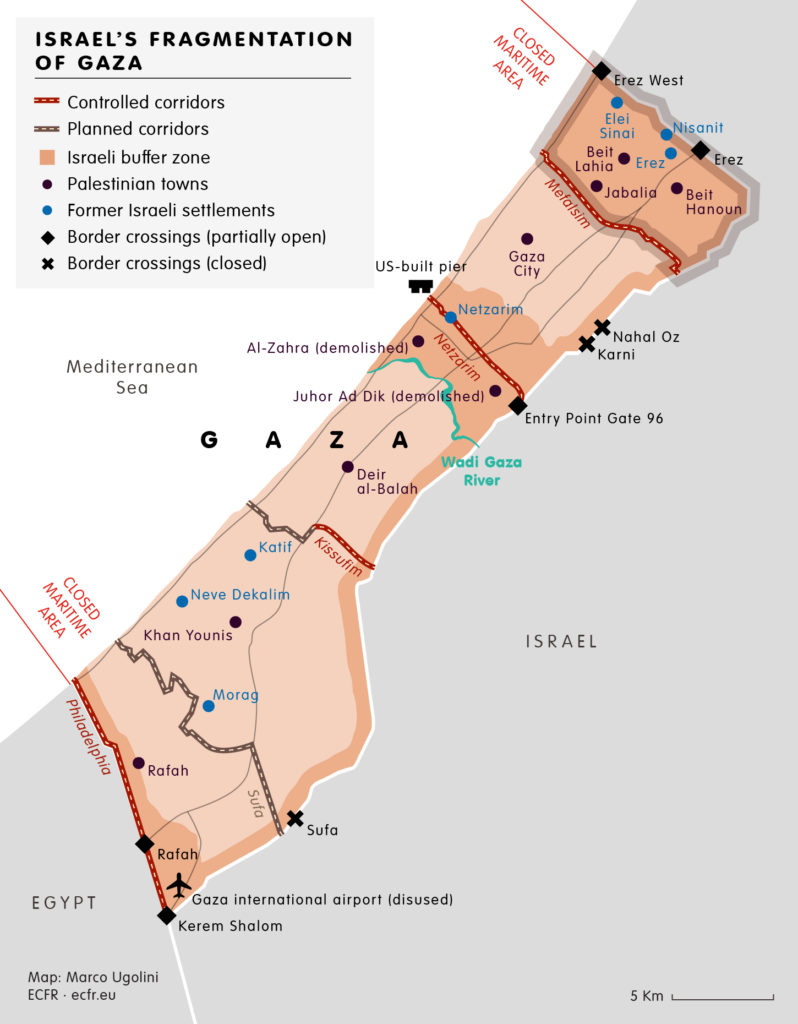The ongoing protest cycle in Georgia is not just a reaction to the ruling Georgian Dream’s controversial election victory in October. By suspending accession talks with the EU in a society that is solidly pro-European, it has detonated an existential struggle over the country’s future.
Recent polls show support for joining NATO among Georgians at 67%, while joining the EU is at 79%. According to EU Neighbours East, 60% have a positive image of the EU, with only 5% holding a negative view. It is no surprise that protestors now come from a wider array of groups than the traditional opposition parties.
When the College of Electors choose a president aligned with Georgian Dream on 14 December—a certainty considering the engineered nature of the process—these protestors will have no institutional outlet for their demands. Georgia could face a Belarusian scenario, with severe repression and bans on opposition parties and media, or a Ukrainian or Maidan-style scenario, with a standoff and protracted protests.
This is why the EU should not let this momentum slip away and focus on unwinding Georgian Dream’s tightening political control. One potential solution could be holding new elections under the old Central Election Commission or under international supervision, as recommended by a resolution adopted by the EU Parliament. And Georgian Dream must be incentivised to negotiate. For example, the EU could deny visa-free travel to holders of diplomatic passports, which does not require unanimity. This would show the elite that US-led sanctions might spread. Ordinary Georgians, however, should continue to be allowed to travel freely. Funds to support civil society should be preserved.
Fraud by a thousand cuts
Over the past decade, Georgian Dream has built a vast vote-buying machine, largely overseen by the security services and particularly targeting the country’s 302,000 state employees. Because of this machine, it is hard to judge Georgian Dream’s “real vote”, but it’s definitely less than 50%, rather than the claimed 53.9%. One exit poll and analysis claimed discrepancies of 8%.
But Georgian Dream’s strategy goes beyond mere vote-buying. It includes paying MPs to maintain their loyalty and enacting a multi-purpose anti-NGO law, passed in May, that narrowed the space for opposition. It also changed the composition of the Central Election Commission to reduce opposition influence, making it “immune to external pressure and internal revolt”, as said by political scientist Sergi Kapanadze. It also included introducing electronic voting which, while ironically reducing the chances of manual fraud, prevented the CEC buildings from becoming a focal point of protest during the counting process.
On Saturday, a new president is due to be chosen by the 300-strong College of Electors in a process also engineered by political technology. The College of Electors consists of all 150 MPs (Georgian Dream has claimed 89, while the opposition are boycotting their seats), plus local government representatives, Georgian Dream being stronger outside the capital Tbilisi. President Salome Zourabichvili, now a powerful advocate of the opposition, will therefore be replaced by the Georgian Dream nominee Mikheil Kavelashvili, a former footballer and member of far-right satellite party People’s Power (previously he had been deemed too extreme to run Georgia’s Football Association).
Instead of one provocative big steal, fraud was disguised as a thousand small cuts.
Meanwhile, the government has been escalating repressive tactics, to the point that Zviad “Khareba” Kharazishvili, Director of the Department of Special Tasks of the Ministry of Interior, is known as Georgia’s “alleged Minister for State Violence”. In Georgian Dream media and in its well-organised troll factories, protestors are routinely attacked.
Miscalculation
Previously, Georgian Dream’s strategy involved carefully navigating the political landscape without ignoring or unnecessarily provoking the fact that most Georgians are firmly pro-European. The ruling party has not previously been openly or fully pro-Russian, preferring instead to align with fringe parties that hold that stance. Georgian Dream preferred the far right to weaken the pro-Western movement in Georgia from a relative distance, while assessing how much of their pro-Russian and anti-Western sentiment they could reveal without drawing significant backlash, according to Ukrainian political scientist Aton Shekhovstov.
Now they have dropped the facade. While protests just after the election were muted, the EU announcement has prompted larger demonstrations, in more places, and more persistently than expected. As in Ukraine during Maidan, protestors are relatively young, internet-savvy, and not necessarily affiliated with opposition parties. Repressing the leaders of those parties therefore makes little difference.
There is a battle of nerves and a battle of numbers. The Interior Ministry is trying to recruit more police, with some oddly displaying Russian accents. They also rely on private security firms and titushki (thugs, or zonderebi in Georgian). More than 400 protestors have been detained and 100 injured. As in Ukraine’s Maidan, the government is banning protest tactics like wearing masks. A giant Christmas tree has been placed outside parliament to close off the most popular protest space. There is talk of organising strikes, despite Georgia’s deregulated and neoliberal labour laws. Some state officials have resigned or signed protest letters, while signs of unrest among journalists affiliated with Georgian Dream media are emerging.
Protests will either radicalize, go underground, or end by state violence.
The Constitutional Court rejected all appeals and validated the election on 3 December. Unless outgoing President Zourabichvili can find a way to intervene, activists will lose all influence in institutional politics. Protests will either radicalize, go underground, or end by state violence.
The European Council on Foreign Relations does not take collective positions. ECFR publications only represent the views of their individual authors.
Source link











